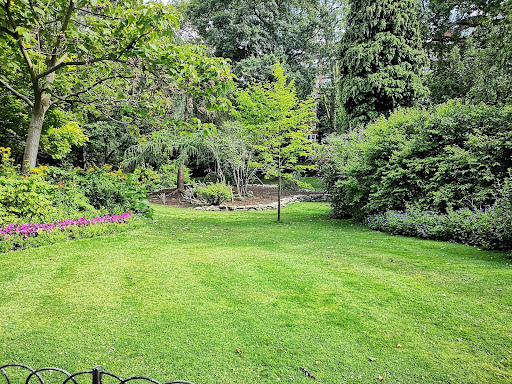Over the last few years, we’ve seen a massive uplift in environmental conscientiousness. Businesses, governments, and individuals are increasingly concerned with all things green. Helping to drive this trend has been a small army of ‘zero-waste’ influencers concerned with finding and sharing ways to drive down any given person’s carbon footprint. It should probably come as no surprise that environmental concerns are shared by gardeners, in particular. If you’re looking to make your small patch of green space that little bit greener, there are a few simple strategies you might follow for a greener garden.
Upcycling Containers for Planters
You don’t need to throw away your old plant pots. The ceramic ones will last for a lifetime, and in many cases a few nicks and scratches can add to the charm.
If you’re in need of new pots, you can often make them yourself from upcycled materials. Tins, buckets, and other containers all do the job well. Just make sure that there’s adequate drainage by drilling a few holes in the bottom. If you’re using a wooden container, like an old set of drawers, then you’ll want to make sure the timber is appropriately treated – and that the interior is lined to protect it from soil.
DIY Seed Starters from Household Items
You can take the same approach for your seed starters. You can get seeds to sprout in just about any small container. Eggshells, egg cartons, toilet paper rolls, spice pots, and old plastic tubs can all serve this purpose. You might nurture your tomato seeds in an egg carton to get them going.
For best results, it’s a good idea to look for biodegradable materials – but if you know that you aren’t using a plastic item for any other purpose, then there’s no environmental harm in using it to get your new plants started.
Composting Kitchen Scrape
If you aren’t using your leftover scraps from the kitchen, then your garden is missing out on vital compost materials. You can set up a compost bin, which will allow your potato peelings, banana skins, and eggshells somewhere to rot slowly over time. Make sure you’re frequently turning it to let the air in.
Then there’s vermicomposting, which accelerates the process with the help of earthworms. This involves a little bit effort, but it results in a superior compost. Finally, you might consider Bokashi composting, which involves fermenting kitchen waste before using it as compost. You’ll need to invest in a special bin, but the results might be worth the effort.
Making Natural Pest Deterrent
You don’t need to resort to chemical pesticides to keep harmful organisms away from your garden. Garlic and chili are natural pesticides, and can be blended or left to infuse in water. Spray the result onto leaves.
Certain kinds of herbs have natural pesticidal qualities. These include basil, mint, and marigold. By using organic pest control methods, you’ll save money, help the environment, and reduce the risk of harming pets and children who might be in your garden.
Zero-Waste Fertilizers and Boosters
You can often make a fertilizer without composting. For example, you might take banana peels, soak them in water, and sprinkle them over your soil for an effective boost in potassium. Calcium can be obtained in a similar way, by grinding up old eggshells or bones. Again, this approach will help you to save money and limit your environmental impact. For best results, however, it’s a good idea to test your soil first.
Rainwater Harvesting and Conservation
Collect the rainwater that falls on your garden, and you’ll be less reliant on the water that comes out of a tap. Set up a system of gutters, and a barrel. You might use this water to water plants directly, possibly via a system of pipes and sprinklers.

